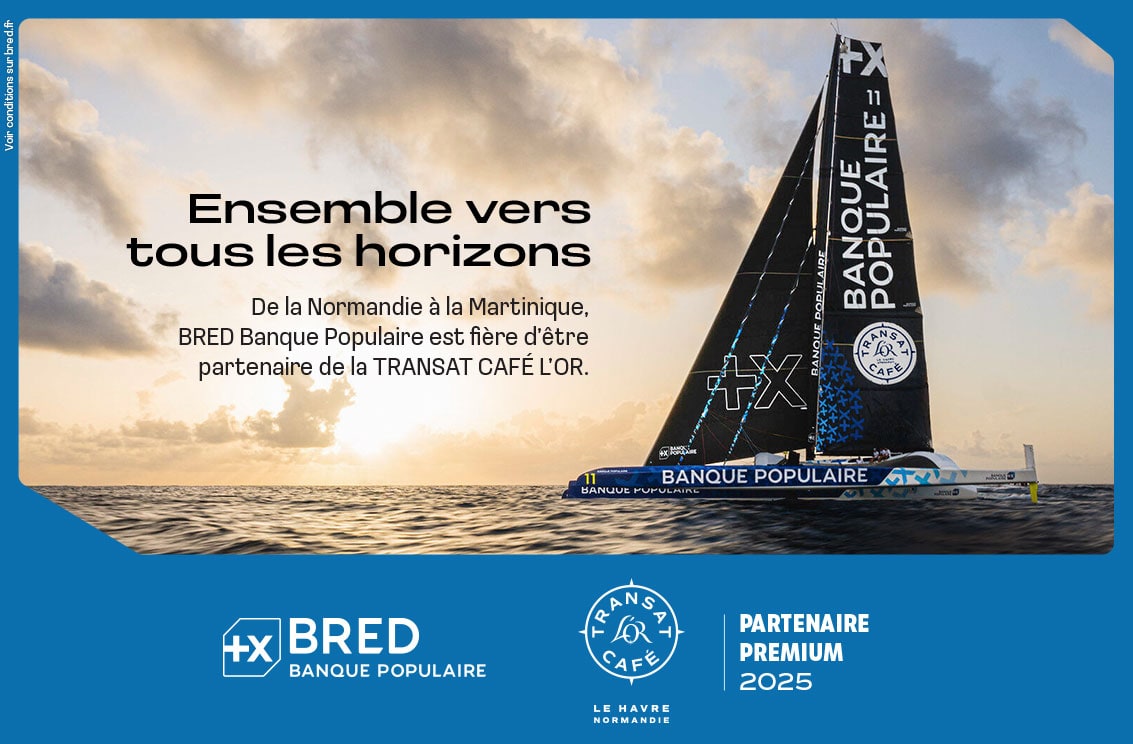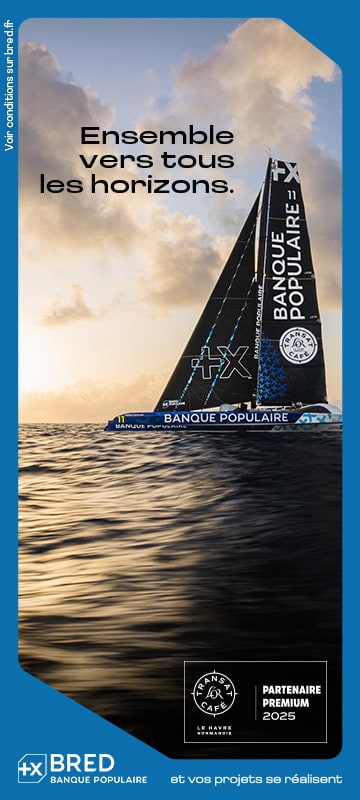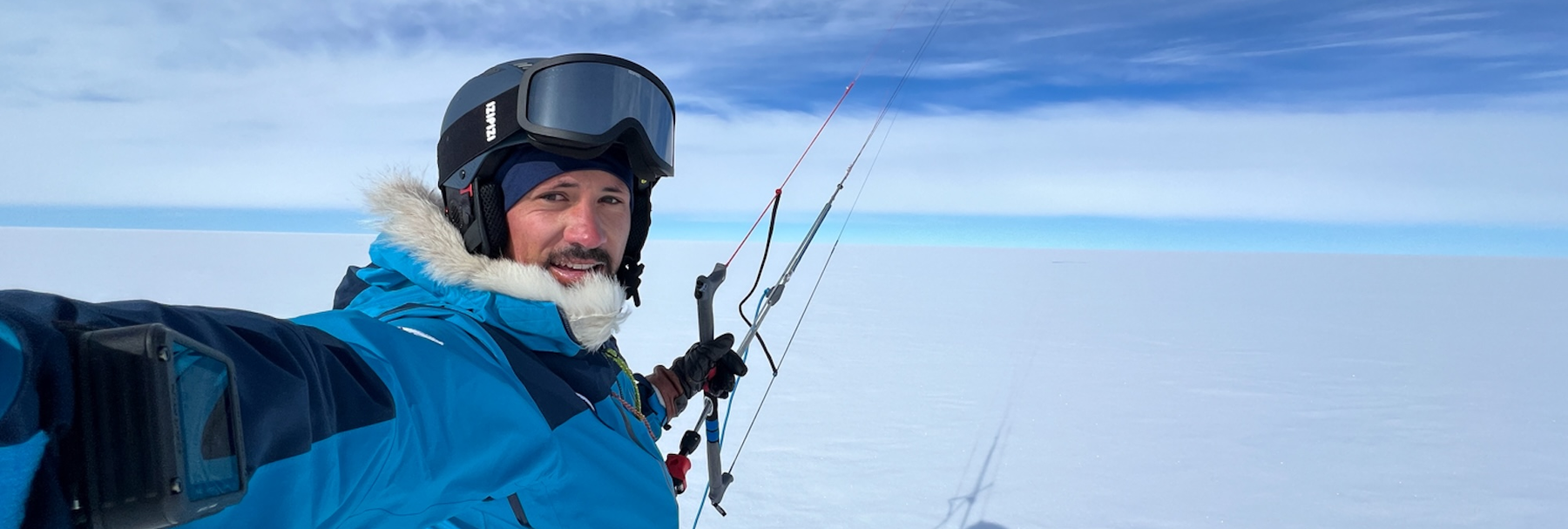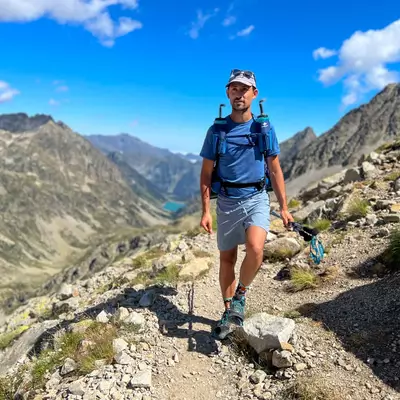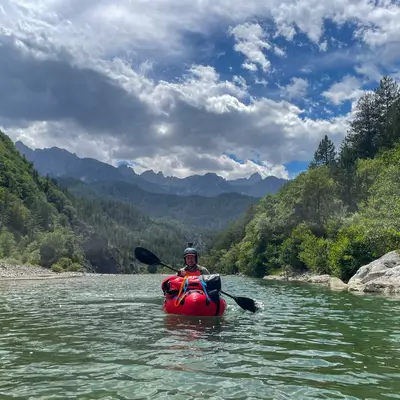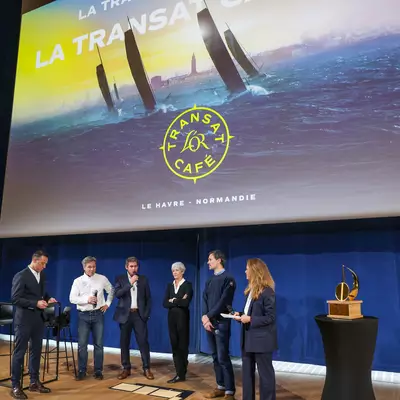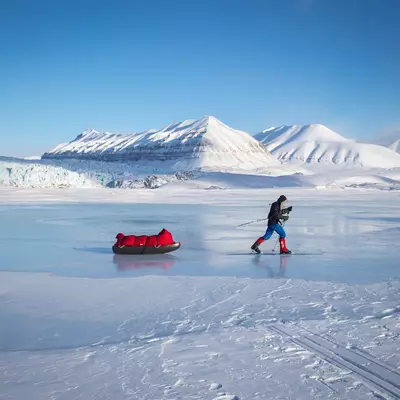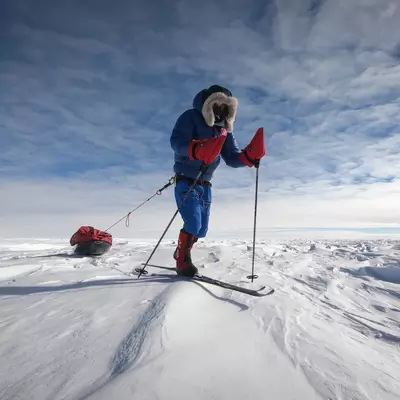Matthieu Tordeur, you have many strings to your bow. How would you define your profession?
Well that question is always a bit complicated! I'm a speaker, a documentary filmmaker, and, above all, a fieldworker who travels to the distant lands like the Arctic and the Antarctic. The link between all these activities is adventure and exploration, which I now use to promote science and awareness. I like to surround myself with glaciologists and scientists when I travel, to learn more and share it. I feel like a witness or spokesperson for these fragile environments that are bearing the brunt of climate change.
You circumnavigated the world in a 4L (Renault 4L), you're the youngest explorer to have reached the South Pole on skis, solo and without external supplies. These exploits and experiences are reminiscent of those used in ocean racing. Do you and skippers share a connection?
Indeed, I think we're similar in some ways. Sailors venture into potentially dangerous places, where they're truly exposed to nature in all its rawness. When you set out to cross an ocean, you rely on the weather conditions, the sea state, and the wind force. And when you're an explorer, it's the same thing. When I was in Antarctica, for example, I found myself in a gigantic ice desert open to winds and crevasses. I believe that, as explorers and navigators alike, we have this ability to face the unknown, this ability to adapt to all conditions that can change very quickly. You have to be flexible and confident in your preparation.
